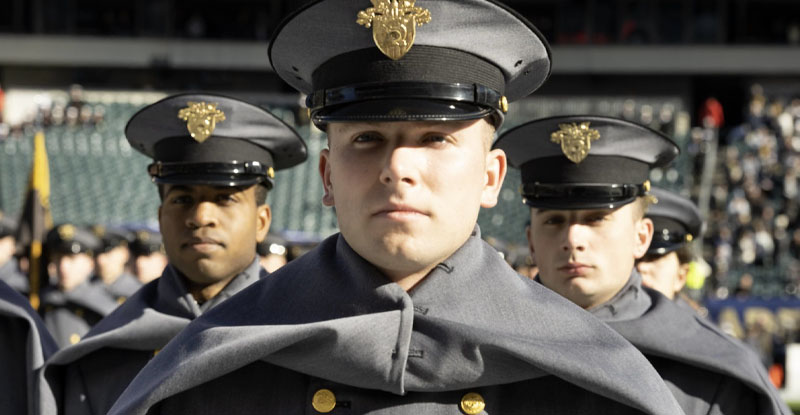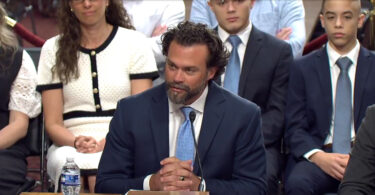By Anthony Lentini, West Point ’71
Recent incursions into American airspace by Chinese spy balloons, an increasingly threatening Chinese military, and an escalating war in Ukraine that pits NATO forces against Russia all point to the need for a strong, tough, professional U.S. military that can win wars and protect the homeland.
The United States spends more on defense than any other country in the world. In fact, our 2021 total of $801 billion exceeded the $777 billion spent that year by the next seven countries — China, India, the U.K., Russia, France, Germany, Saudi Arabia, Japan, and Korea — combined.
What do we get for our money? If 2020’s disastrous Afghanistan withdrawal is any indication, the answer is not much.
After twenty years of war with nearly 6,200 U.S. military and contractor deaths, our precipitous departure left behind some 9,000 American citizens (1); countless Afghan allies; and more than $7 billion in sophisticated weapons, munitions, and military equipment (2).
Much has been said and written about America’s increasingly woke, politicized military and its negative impacts on recruiting and readiness.
Gen. Mark Milley, chairman of the Joint Chiefs of Staff, attracted widespread criticism when he spoke of “white rage” and reportedly hid nuclear codes from President Trump while telling his Red Chinese counterpart he would provide advance warning of any planned U.S. attack on China.
Even cadets and midshipmen at the nation’s military academies are undergoing woke indoctrination in Critical Race Theory, transgenderism, “toxic masculinity,” and so-called Diversity, Inclusion, and Equity, which many military experts fear will harm unit integrity, morale, and war-fighting capability.
And now there is a new wrinkle at our academies: the Spectrum Club, which “actively bridges the relationship between Lesbian, Gay, Bisexual, Transgender Questioning (LGBTQ) cadets [and midshipmen] and their allies” and “serves as a safe haven for LGBTQ cadets [and midshipmen] when they need support[.]”
Since the introduction of women to our military academies in 1976, our armed services have struggled mightily with the issue of sexual fraternization among cadets and midshipmen.
Why, then, would these institutions not only permit, but celebrate clubs based solely on sexual orientation? One doubts whether heterosexual clubs would be approved, nor should they be.
And do we really want future military leaders who are so fragile as to require “safe spaces”?
When I was a cadet with the West Point Class of 1971, we all were required to shoulder a grueling academic, military training, and athletics schedule that included boxing, wrestling, gymnastics, survival swimming, pugil-stick fighting, bayonet training, rappelling, forced marches, obstacle and confidence courses, hazing and running, running, running, often with weapons, loaded backpacks, helmets, and combat boots.
Anyone whining for a “safe haven” would have been unmercifully ridiculed, and rightfully so. After all, we were training to be combat leaders, a job that requires courage and mental and physical toughness.
We all experienced or witnessed people being bloodied and knocked out in the boxing ring, smacked face-down into the sawdust of a pugil-stick pit, or vomiting after carrying a machinegun on rugged, multi-mile cross-country runs.
One personal story from when I was in Beast Barracks, or new cadet training, during my first summer at West Point in 1967: I landed wrong on a jump from an obstacle course platform. Doctors found I had chipped my heel bone and prescribed a painkiller that made me depressed, so I relied on aspirin instead to help quell the sharp pain I experienced when running, and we ran everywhere.
My only other option was to recycle into the next class, a year later, so instead I gutted it up and ran on my injured foot until the sliver of bone worked its way out like a piece of shrapnel.
That was nothing compared to the severe traumas some of my fellow cadets endured, from broken limbs and scrotum ruptures to concussions and worse.
We’re all in our seventies now, and many of my classmates are undergoing major surgeries to repair hip, back, and other injuries that date to their West Point and Army service years.
And still today, nobody whines or seeks a safe space; we do what is necessary and then move on with our lives.
So here is a question for the American people: whom do you want to lead your sons and daughters, brothers and sisters, spouses and grandchildren into mortal combat? Spectrum Club members or people of strength and character?
–
(1) Left Behind, United States Senate Committee on Foreign Relations Minority Report, Feb. 2022, p. 10.
(2) Department of Defense Office of Inspector General, News Release, Aug. 10, 2022.








Leave a Comment